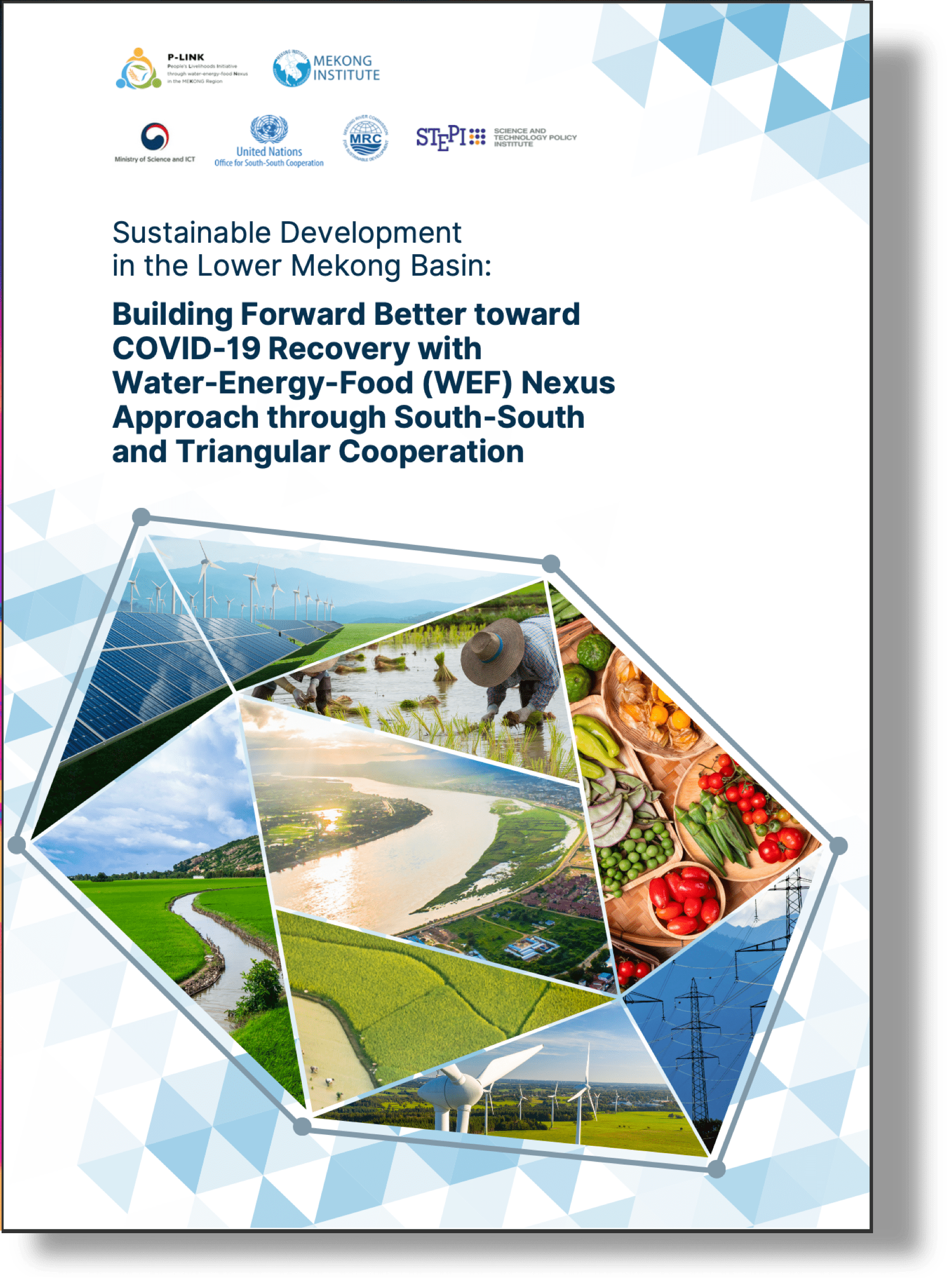Building Forward Better toward COVID-19 Recovery with Water-Energy-Food (WEF) Nexus Approach through South-South and Triangular Cooperation (2023)
The Mekong region is richly endowed with natural resources and has some of the most biologically diverse habitats in the world. However, despite rapid economic developments, including increased urbanization and poverty reduction in the past few decades, significant challenges remain. Moreover, the global COVID-19 crisis caused unprecedented socio-economic disruptions in the region, setting back development gains by years and widening inequality gaps. To recover faster from the COVID-19 pandemic while promoting the sustainable development of society, an innovative approach based on the“Building Forward Better” (BFB) concept is required.
The Water-Energy-Food (WEF) nexus is an integrated framework to address multi-sectoral and interconnected challenges by identifying synergies and trade-offs among sectors. As water, energy, and food are fundamental human needs, the WEF nexus can directly or indirectly influence the achievement of all Sustainable Development Goals (SDGs). Workingon the BFB concept with the WEF nexus can provide efficient recovery solutions from the COVID-19 pandemic, promote cross-sectoral sustainability, and enhance socio-economic resilience against future crises.
Adhering to the principles of South-South and Triangular Cooperation (SSTC), the ROK-UNOSSC Facility-Phase 3 aims to enhance sustainable development and management of water, energy, and food in the Lower Mekong Basin (LMB) while recovering faster from the COVID-19 pandemic as well as improving the resilience of communities to withstand future crises.
Therefore, strengthening SSTC stands as an important mechanism to effectively facilitate this initiative including the implementation of the strategic responses of the Mekong River Basin Development Strategy.

